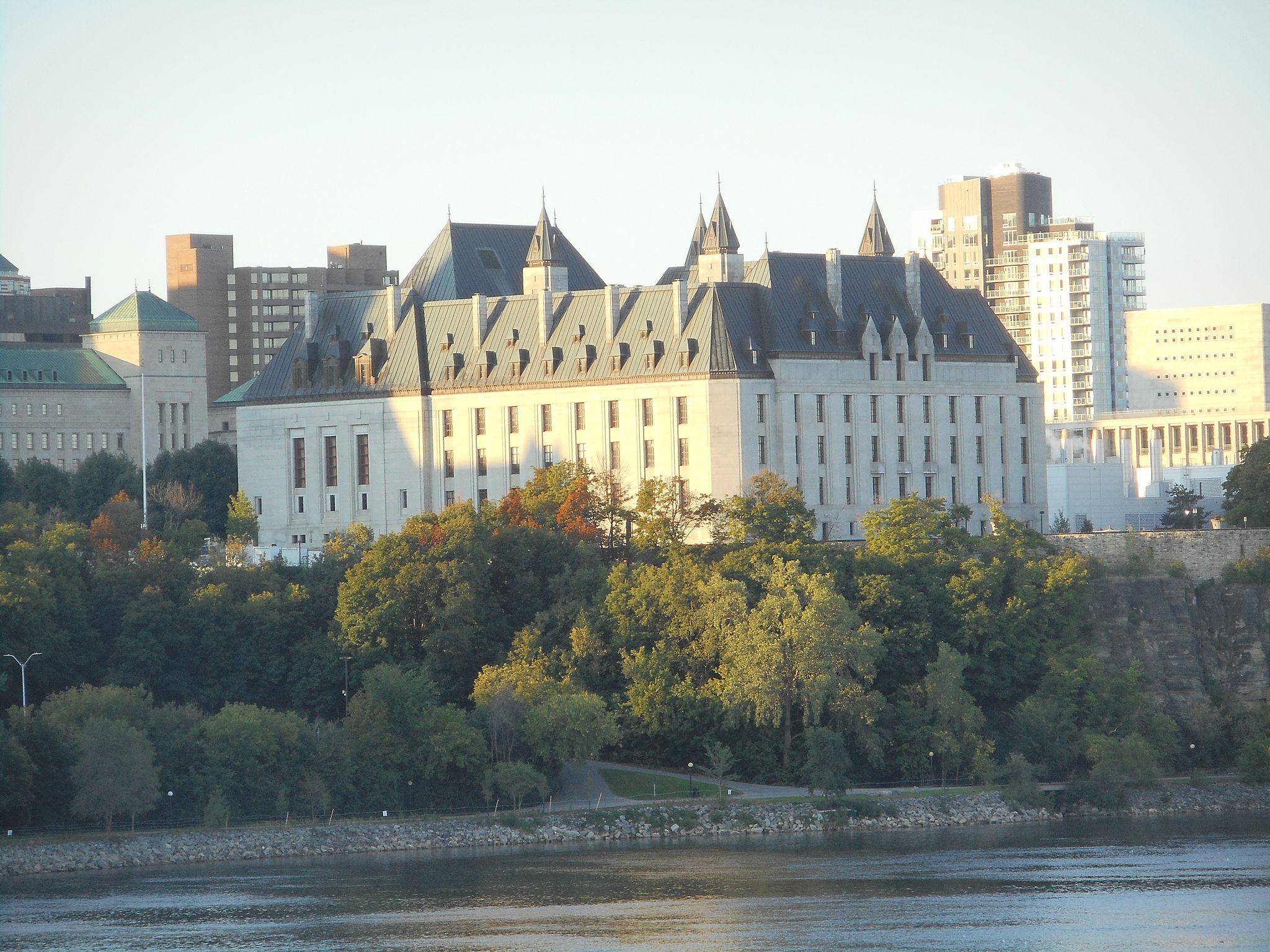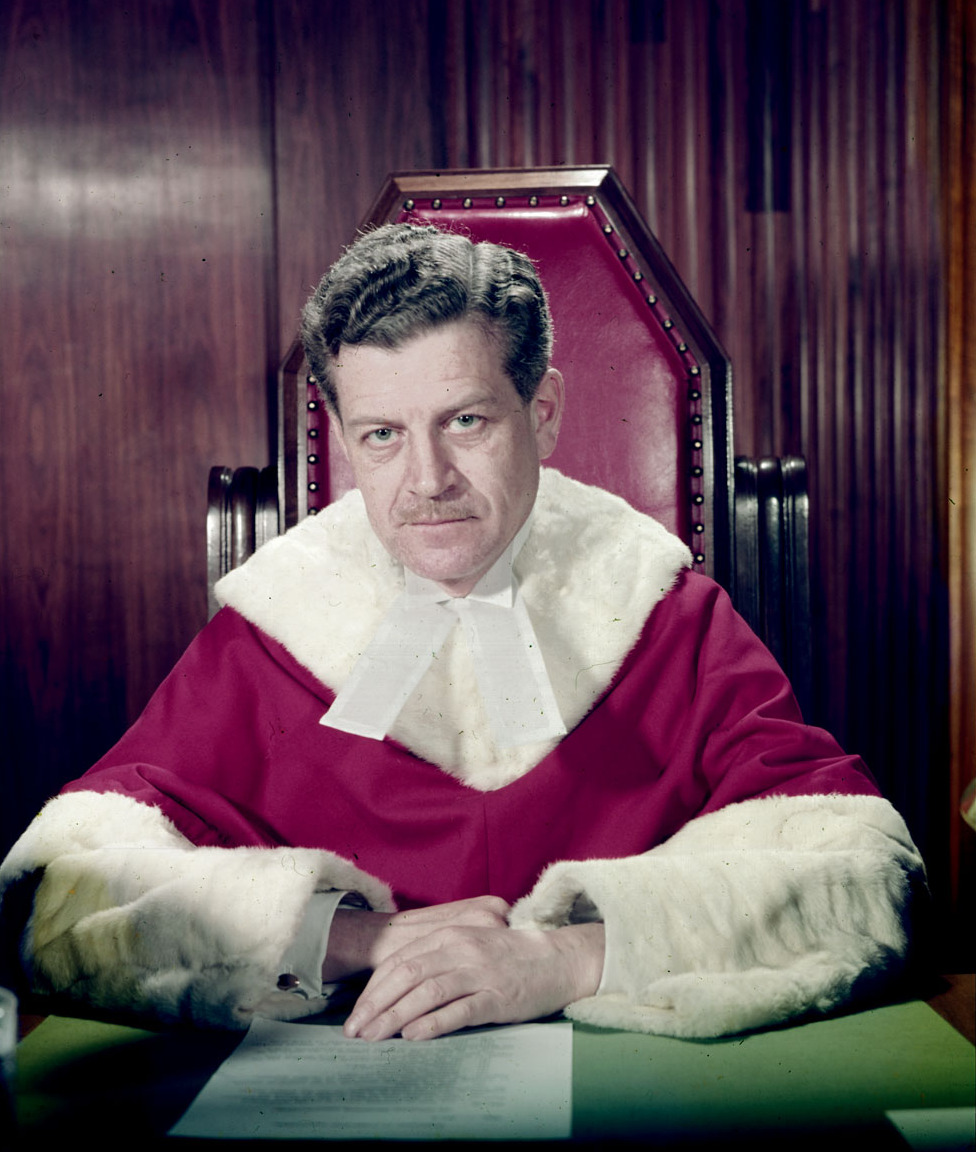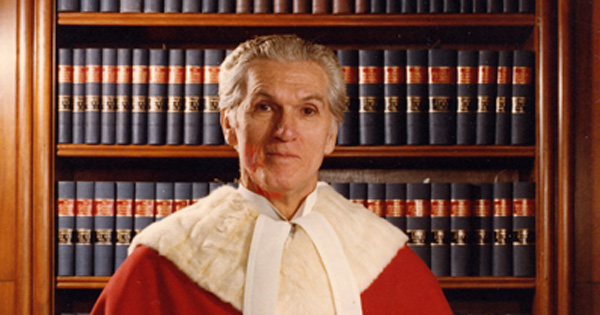John Robert Cartwright, CC, Supreme Court of Canada justice 1949–67, chief justice of Canada 1967–70, lawyer, soldier (born 23 March 1895 in Toronto, ON; died 24 November 1979 in Ottawa, ON). John Robert Cartwright was a justice of the Supreme Court of Canada from 1949 to 1967, and chief justice of Canada from 1967 to 1970. Known for his conservative view of the law, Cartwright played influential roles in stopping the deportation of Japanese Canadians, prosecuting Soviet spies in the wake of the Igor Gouzenko affair, and decriminalizing homosexuality. Prior to his legal career, Cartwright served in the Canadian Expeditionary Force during the First World War. He rose from private to captain and earned the Military Cross in 1917. He was made a Companion of the Order of Canada in 1970.
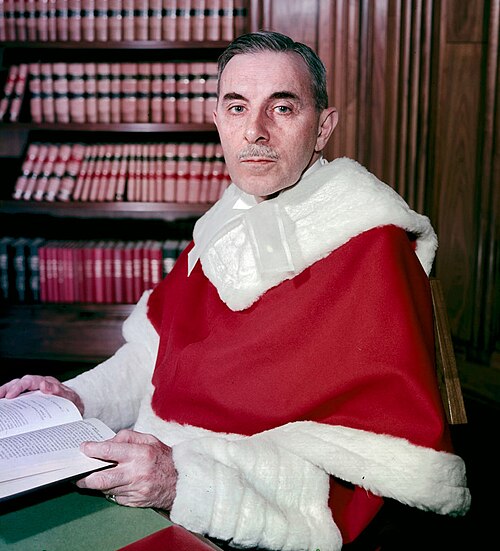
Early Life and Military Service
John Robert Cartwright was born and raised in Toronto. He had two older sisters. Cartwright graduated from Upper Canada College in 1912. He enrolled at Osgoode Hall Law School and began articling with the Toronto firm Smith, Rae & Greer.
When the First World War began in August 1914, Cartwright enlisted as a private with the Canadian Expeditionary Force, 3rd Battalion, Infantry. He served on the front lines in France. He was wounded in May 1915 and again four months later. Cartwright was promoted to lieutenant in 1915 and to captain in 1916. From 1916 to the war’s end, he served as an aide-de-camp with 3rd Canadian Division generals Mercer, Lipsett and Loomis. In January 1917, he was awarded the Military Cross for “courage in face of the enemy.”
While on leave, Cartwright was married to Jessie Carnegie Gibson on 8 October 1915. They had a daughter named Margaret. Upon his return to Canada, Cartwright resumed his law studies. He joined Smith, Rae & Greer when called to the bar in 1920.
Legal Career
John Robert Cartwright played a significant role in two of Canada’s most important 20th-century legal cases. When the Second World War ended in 1945, the federal government announced plans to deport Japanese Canadians who had been interned. (See Internment of Japanese Canadians.) Cartwright was lead council for the Co-operative Committee on Japanese Canadians. He and two other attorneys presented arguments that helped persuade the government to rescind its deportation orders.
Cartwright’s second significant case involved Igor Gouzenko. Gouzenko was a Soviet intelligence officer who defected to the Canadian government shortly after the end of the Second World War. He offered proof that the Soviet Union had spies in Canada and the United States. His revelations were kept secret for months, but when news leaked, Prime Minister Mackenzie King created the Royal Commission on Espionage to investigate Gouzenko’s allegations. Cartwright was the lead Crown prosecutor in the trials that resulted from the findings of the Commission (also known as the Kellock–Taschereau Commission). The RCMP arrested of 39 suspected Soviet spies, 18 of whom were convicted through Cartwright’s efforts.
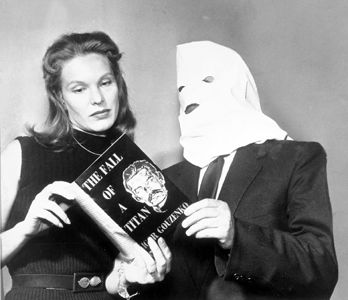
Supreme Court of Canada
Prime Minister Louis St-Laurent appointed John Robert Cartwright a justice to the Supreme Court of Canada on 22 December 1949. Cartwright was one of two justices whose appointment increased the size of the Court from seven to nine.
Cartwright’s appointment came at a pivotal moment in Canada’s legal and constitutional history. Canada’s Supreme Court was created in 1875. But its decisions could still be appealed to Great Britain’s Judicial Committee of the Privy Council. However, in 1933 Canada’s Supreme Court became the final arbiter for criminal cases and, in 1949 — the day after Cartwright’s appointment to the Court — for civil cases. The Supreme Court began seeing more cases and a wider range of cases than ever before.
Cartwright distinguished himself by dissenting from the majority on significant cases. For example, in Saumur v. City of Quebec (1953), Laurier Saumur challenged a provincial law that granted municipalities the power to stop Jehovah’s Witnesses from distributing printed material. Five justices argued that the law was unconstitutional because it prevented the free exercise and enjoyment of religion. Taking a more conservative position, Cartwright was among four justices who argued the law was valid. He wrote that a provincial government must have the power to “regulate the distribution in the streets of written matter having a tendency to insult or annoy the recipients thereof with the possible result of giving rise to disorder, and perhaps violence, in the streets.”
Roncarelli v. Duplessis was a similar case. Quebec’s premier and attorney general, Maurice Duplessis, was informed that restaurant owner Frank Roncarelli had paid the bail of more than 375 people who had been arrested for distributing Jehovah’s Witness material. Duplessis had Roncarelli’s liquor licence revoked. When the case came to the Supreme Court in 1959, the majority found that the premier had acted improperly and that as a public official he was not above the law.

Again taking a conservative view, Cartwright wrote a dissent. He argued that the Quebec Liquor Commission had the right to decide who received a liquor permit because it was an administrative body and should not concern itself with judicial matters. Even if the commission had judicial powers, he wrote, Roncarelli was still not entitled to damages.
Supreme Court Chief Justice
On 1 September 1967, Prime Minister Lester Pearson appointed John Robert Cartwright the chief justice of the Supreme Court of Canada. Among the significant cases decided by the Cartwright Court was Klippert v. the Queen (1967). In 1960, Everett Klippert was convicted in Saskatchewan of engaging in homosexual acts and sentenced to four years in prison. After his release, he moved to the Northwest Territories where, in 1965, he was convicted of gross indecency and sentenced to three years in prison. His sentence was then extended to preventive detention, which amounted to an indefinite prison sentence.
The Supreme Court split in its decision, but the majority upheld Klippert’s sentence. Cartwright wrote a powerful dissent. He argued that, if released, Klippert would continue to engage in homosexual sex but questioned whether that activity would “cause injury, pain or other evil to any person.” Cartwright wrote that Klippert was not a public threat because he was not violent and only engaged in consensual sex with adults. He argued that the federal government needed to clarify the law regarding the legality of homosexuality.

Cartwright’s arguments influenced public opinion around homosexuality and the government’s role in people’s private lives. In 1967, Justice Minister Pierre Trudeau — who declared “the government has no place in the bedrooms of the nation” — introduced the Criminal Law Amendment Act. It was passed by Parliament in 1969. Among its provisions was the decriminalization of homosexual acts between consenting adults. (See also 2SLGBTQ+ History: Timeline.)
Retirement
John Robert Cartwright retired on 23 March 1970, after having served on the Supreme Court for 20 years. That October, he was made a Companion of the Order of Canada in recognition of his years of service to the legal profession. Cartwright died in Ottawa on 24 November 1979 at the age of 84.
(See also Judiciary in Canada; Court System of Canada.)

 Share on Facebook
Share on Facebook Share on X
Share on X Share by Email
Share by Email Share on Google Classroom
Share on Google Classroom


